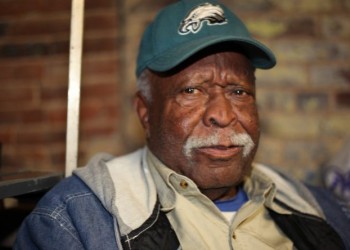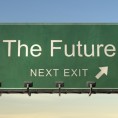As Chairman of the Milken Institute Center for the Future of Aging and distinguished scholar in residence at the University of Southern California Davis School of Gerontology, Paul Irving knows a thing or two about Baby Boomers. Given our own interests in the subject (see recent bestseller Millennial Marketing: Bridging the Generation Gap), we couldn’t help but wonder what kind of insights he might share. Below, you’ll find Irving’s thoughts on a variety of helpful topics from new trends taking shape amongst members of this generation to what businesses and brands need to know to better capture their attention and engage them:
Q: What constitutes a Baby Boomer in your mind? And what notable characteristics, behaviors, and perspectives most define this generation from your standpoint?
A: A generation that challenged expectations and conventions when they were young, and they’re at it again, changing expectations and conventions about what getting old should mean.
Q: What are some of the most important trends and happenings we’re seeing emerge amongst people who hail from this age group?
A: Many Boomers reject the notion of “traditional retirement.” A large percentage of Boomers want to age in place and at home, want to continue work, and want to remain enthusiastically engaged in their communities, businesses, charities, and places of worship.
Q: A few unexpected things people would never guess about members of this generation would be…?
A: Even as they age, Boomers seek exiting new products and services, and new styles. And they are much more technologically proficient than some believe.
Q: How does this generation fundamentally differ from those which came before – and those which have followed since?
A: Boomers are the leading edge of a global conversation about how increasing human longevity will change lives forever. They’re thinking and acting about their own increasing age in new ways, establishing new norms and examples for future generations.
Q: How might Baby Boomers be unexpectedly similar to other generations in ways casual observers might not expect?
A: Boomers share many of the values of their parents’ generation and they share many of the interests of their kids – from music to food to new technologies.
Q: How has this generation changed the world, and what kind of impact has it had on our society?
A: Boomers challenged a war, engaged in activism for civil rights and liberties, and embraced experimentation and open thinking in new ways. While each generation has its differences (and similarities) to others, the size of the Boomer generation and its emergence in the context of great and rapid change magnified its impact and amplified its uniqueness.
Q: How have boomers changed as they’ve aged over time?
A: All generations change with age, and the Boomers are no different. But, again, we see strong indications that Boomers are reacting in new ways to aging – and that’s a good thing.
Q: As boomers move into later stages of life, how are they redefining the concepts of retirement and old age?
A: They seek ongoing work and encore careers often involving passion, purpose, and a paycheck. They want to age in place and at home and they are less likely than their parents to aspire to age segregated retirement communities.
Q: Some of the best and most effective ways to connect with and speak to members of this generation would include?
A: Don’t assume that increasing age means less interest in big ideas, exciting innovations, great design, etc. Don’t ever infantilize. And avoid ageist stereotyping.
Q: How have Baby Boomers’ daily, social and professional habits changed over the years – and what would those hoping to communicate with them do well to know about these shifts?
A: Desire for more free time without wanting to be sidelined. They’re also looking for increasing balance and searching for purpose and meaning.
Q: What advice would you give businesses or brands hoping to more effectively engage Baby Boomers?
A: The longevity economy/mature markets represent the most exciting opportunity in the world for product manufacturers and service providers.
Q: More and more boomers are moving online for their news, information, shopping, and more. What’s the best way to capture their attention and interact with them these days?
A: Acknowledge that aging challenges honestly, but do not talk down to this audience. Assume for many boomers that wisdom, judgment, and years of experience mean enhanced capacity and capability. There’s an opportunity for a boomer call to action….
Q: What does success look like for today’s Baby Boomer in your opinion, and what’s driving them as they go about making decisions in business and life?
A: Work is good for one’s health and wealth. Traditional retirement – withdrawal, diminishment, separation, etc. – needs to be retired. Boomers want and should have choice: They’re looking for the opportunity to stay actively engaged, but in new ways, and with both the challenge and flexibility that many seek.
Q: Anything we haven’t discussed that you’d like to add with regard to Boomers that individuals or organizations should be aware of?
A: In addition to my own website, Encore.org, I recommend people read about the White House Conference on Aging as additional resources where they can find out more about Boomers.
For more on how to effectively manage, lead, and communicate with every generation, be sure to check out Millennial Marketing: Bridging the Generation Gap.














